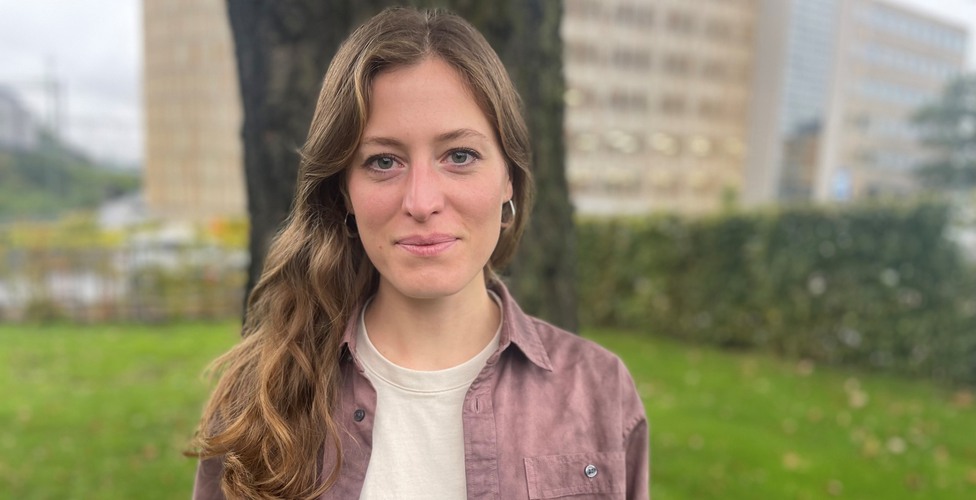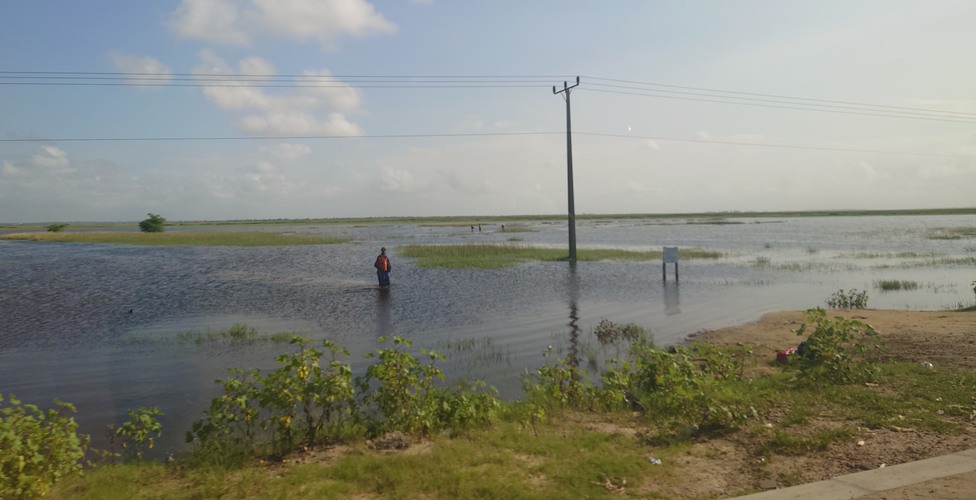Agnes Taripanah, student at the University of Skövde, went to Mozambique to do her thesis project in Public Health Science. Mozambique is a country affected by extreme weather and climate change, and where the majority of the population is dependent on agriculture. Agnes encountered a different reality and in addition to material for her thesis project, she came home with many new experiences.

The rain beats against the window panes as Agnes Taripanah begins to talk about her time in Mozambique. Weather conditions in particular have changed and affected the lives of the women and men that Agnes interviewed. But we backtrack a bit first. Agnes states that her interest for health has always been great along with the interest in food, cultivation and music. She has previously mainly worked with cultivation, in restaurants and studied some courses.
“When I wanted to study at a university I came across the Public Health Science programme at the University of Skövde and I felt right away that it was the one for me,” she says.
When it was time for her thesis project the idea of doing it abroad came up.
“I have travelled quite a bit myself and always been curious about East Africa. For me, it was a good opportunity to be able to go to an African country, to be part of a context and to have a task. It was important that I could contribute with something valuable to the host country.”
Scholarship to go abroad
Agnes applied for the SIDA-funded Minor Field Studies scholarship and in various ways she came into contact with people in Mozambique.
“During the application period, I heard a lot about difficulties in obtaining permission to carry out studies and about things that were difficult for others who went to an African country, but for me everything worked fantastically well. I stayed at an Airbnb in the capital Maputo and it was perfect to live like that to get to know others.
Agnes states in her thesis that small family farmers in Mozambique, both women and men, are a vulnerable group. They are particularly vulnerable to various forms of extreme weather, like major floods and severe drought. Extreme weather such as cyclones, tropical storms and higher water levels affect the country more and more often and the situation is connected to climate change. In February this year, Mozambique and several neighbouring countries were hit by Cyclone Freddy.
“I made five visits to various villages and I was accompanied by an interpreter. I got help to contact farmers for interviews and for me it was important to be clear about that it was not an aid effort, but research, albeit at student level. I received an incredibly pleasant reception and felt that those I interviewed appreciated that they were listened to.”
Agnes talks about flooded areas and muddy fields. Lands that have been completely unusable and thus harvests that do not occur or become very small. This in turn leads to a one-sided diet, that no vegetables are left for sale, which means no income for the farmers. In some cases, it affected the extent to which they could send the children to school.
“The farmers were convinced that climate change was behind the weather changes. Some said they have seen increasing weather changes over the past 30 years, but that it has only gotten much worse in recent years. The farmers expressed great concern for the future and a sense of despair.”
Find out the need
Agnes states that previous research has not investigated what the affected groups think. Through nine qualitative interviews, she has received answers to how the farmers, in the affected areas, experience their health and also the support available to them. Through various methods, she has analysed the answers and can state that those she spoke to see climate change as a threat that affects their ability to make a living and thus also their health and well-being. She states that distrust of the government is great and that a non-governmental organisation contributed with lectures, among other thihgs, but that the need for practical efforts is felt to be very great, but that they require greater efforts and funding.
“It is important to really find out what the affected are asking for and not what you think is needed. In interventions, you need to specify what is needed.”
Studies in Ireland
Have you finished your studies?
“No, I am studying a semester in Ireland. All five courses run in parallel and all teaching is on campus. The Public Health Science programme was remote with a few meetings in Skövde, so it's really different for me.”
 Flooded areas and muddy fields. Photo: Agnes Taripanah
Flooded areas and muddy fields. Photo: Agnes Taripanah
